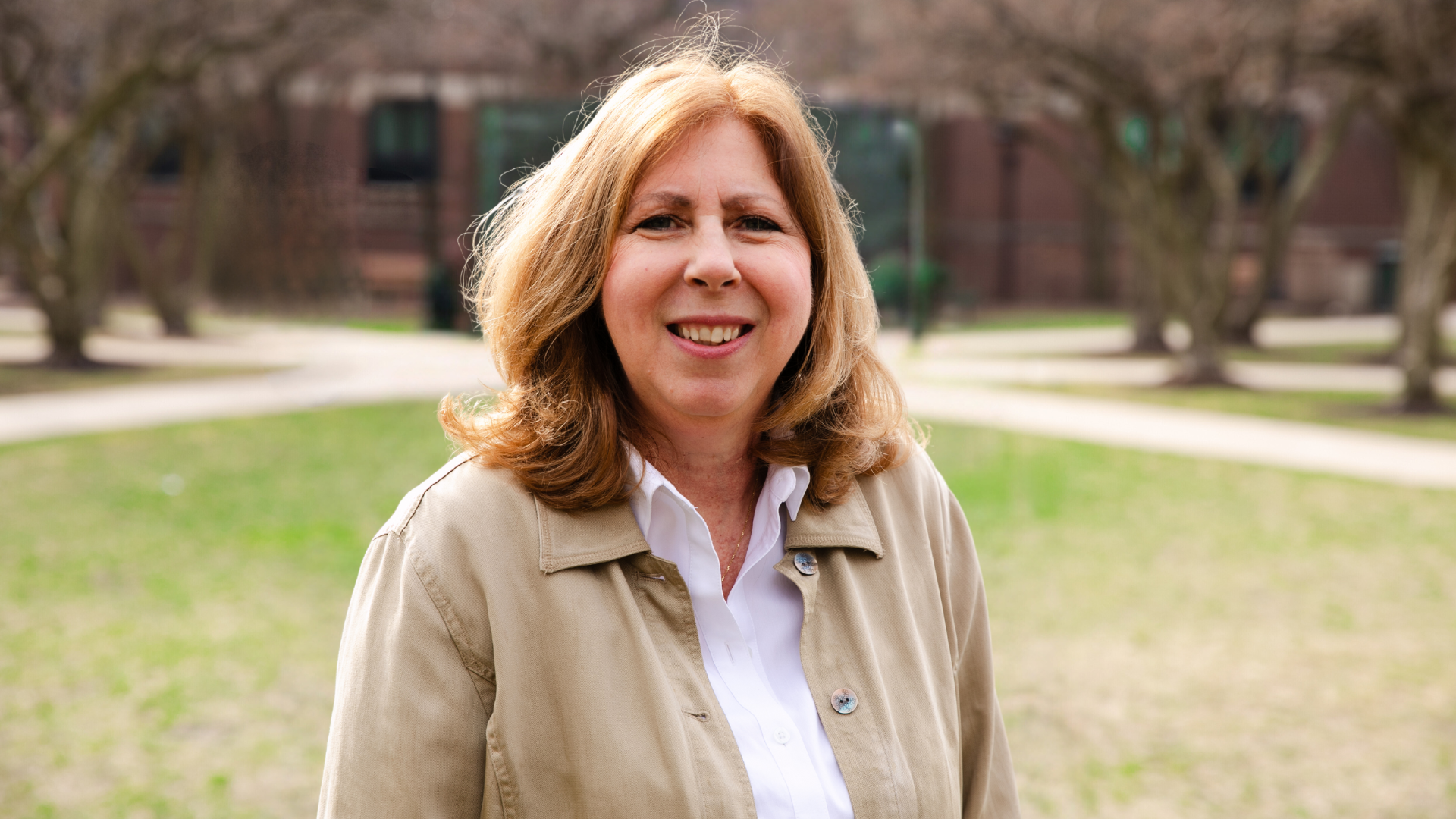 Susan McMahon is a Vincent de Paul Professor of Psychology in DePaul University’s College of Science and Health and chair of the American Psychological Association’s Task Force on Violence Against Educators and School Personnel. (Alex Soares/DePaul University)
Susan McMahon is a Vincent de Paul Professor of Psychology in DePaul University’s College of Science and Health and chair of the American Psychological Association’s Task Force on Violence Against Educators and School Personnel. (Alex Soares/DePaul University)CHICAGO — Rates of violence and aggression against educators are high — and in many cases have risen from pre-COVID-19 levels — leading teachers to suffer mental health consequences and to consider quitting the profession. A new study led by DePaul University psychologist Susan Dvorak McMahon reveals the extent of the problem across our nation’s schools as well as recommendations for the field.
McMahon and researchers from the American Psychological Association’s Task Force on Violence Against Educators and School Personnel surveyed nearly 15,000 educators in pre-K through 12th grade schools before and during COVID-19 restrictions and then nearly 12,000 after COVID-19 restrictions ended. New findings from this study are published in
American Psychologist, APA’s leading journal.
“This is one of the first national studies to examine experiences across stakeholders and offenders in the context of COVID-19 and how violence relates to stress and anxiety and intentions to transfer or quit the profession,” said McMahon, a Vincent de Paul Professor of Psychology in DePaul’s College of Science and Health and chair of the task force.
The findings spanned all 50 states and Puerto Rico and featured teachers, school psychologists, social workers, counselors, staff members and administrators. Researchers found violence and aggression directed against educators by students, parents, colleagues and administrators were substantial before COVID-19, lower during pandemic restrictions, and returned to pre-pandemic levels or, in many cases, rose higher after the restrictions lifted.
“Violence is a major public health issue in the U.S. and around the world. We need to take a holistic approach in understanding different types of violence, the context and experiences of our teachers and other staff, and the effects of violence to raise awareness and develop effective interventions,” McMahon added.
Among the study’s notable findings:
- Verbal and threatening aggression and physical violence against teachers by students, parents, colleagues and administrators increased after COVID-19 restrictions were lifted compared to pre-COVID-19 levels. In addition, rates of violence and aggression experienced after COVID-19 restrictions were higher for teachers compared to all other roles.
- Among teachers surveyed, 80% reported verbal or threatening aggression from students and 56% reported physical violence from students at least once during the school year. Teachers also reported the highest percentage of physical violence instances from parents (26%), colleagues (27%) or administrators (26%) post-pandemic.
- Over half the participating teachers (57%), 37%-39% of administrators and school psychologists, social workers and counselors, and 23% of staff confirmed plans to quit the profession due to experiences with violence and concerns about school climate.
- Levels of anxiety and stress increased dramatically during and after COVID-19 restrictions, compared to pre-COVID-19, in all groups surveyed.
- Over 50% of participants indicated they need training in trauma-informed practices, de-escalation strategies, restorative justice practices, socioemotional learning approaches, working with diverse racial, ethnic, and cultural groups, behavioral management, threat assessment, and staff team building.
“These rates add to our understanding of the pervasiveness of violence across school stakeholders and across offenders in the U.S. and training needs identified by school personnel,” said McMahon. “While not all adult stakeholders report problems with violence, the problem is widespread and troubling. Some of these experiences are horrific. This study highlights the fact that violence and aggression in schools require immediate attention, assessment and intervention,” she added.
Next Steps
Researchers recommend systemic approaches to address aggression and violence from multiple perspectives. In March 2022, task force members presented some initial findings of this study to congressional members in Washington, D.C. with the goal to support the passage of legislation that funds educator training and school-based mental health programs.
“We need to take a comprehensive whole school approach to building positive and safe schools. There is a clear need for educators to be well trained in addressing psychological, social and emotional needs of students. Yet, pre-service and in-service training often provide insufficient coverage of socioemotional learning and strategies to effectively prevent and address violence,” McMahon said.
Instead, researchers recommend district and school leaders engage educators and school personnel in ongoing discussions regarding school practices, discipline, placement, staffing and school climate.
“Policymakers also need to build school capacity, especially in high-need school districts, to ensure schools have the resources and qualified staffing to meet the learning, socioemotional and mental health needs of students,” researchers said.
McMahon emphasizes the need to act on the crisis of educators leaving the field after experiencing violence and related stress. This exodus leads to negative consequences for students and school systems.
“Our study provides guidance regarding what educators and school personnel feel they need in terms of training,” said McMahon. “Further, engaging with parents and communities and providing adequate resources to schools can be helpful in supporting school safety.”
###
Source:
Susan Dvorak McMahon
Media Contact:
Russell Dorn